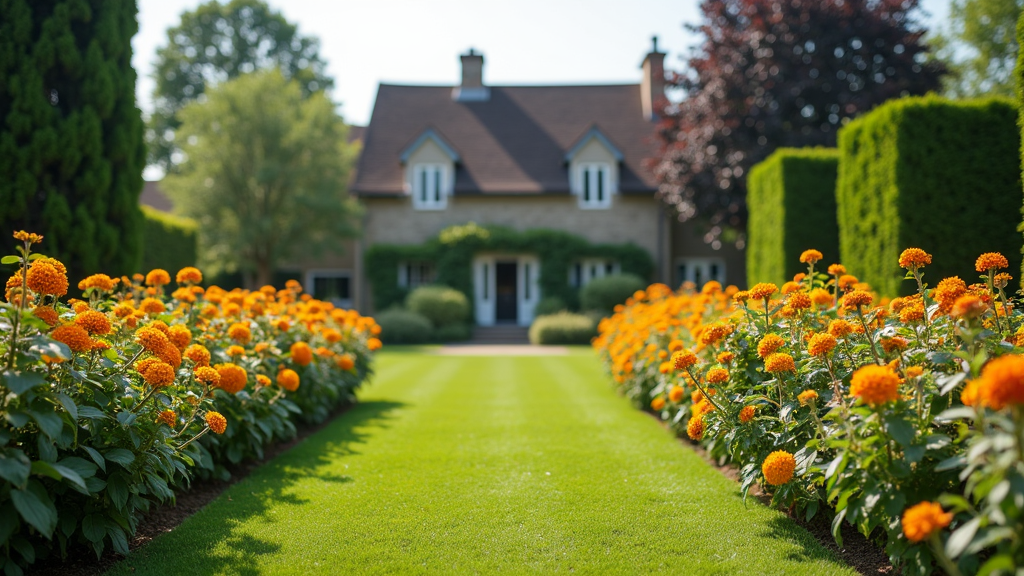Introduction: The Essence of Soil in Landscaping
When it comes to creating a breathtaking landscape in Greensboro, few elements hold as much significance as soil quality. Whether you're a seasoned gardener or just starting your landscaping journey, understanding the importance of soil can be the difference between a thriving garden and a dismal patch of earth. In this article, we will delve deep into “Exploring the Impact of Soil Quality on your Greensbore Landscape”, uncovering how soil influences plant health, water retention, and overall aesthetics.
The Role of Soil in Landscaping Greensboro
What is Soil Quality?
Soil quality refers to the ability of soil to function within ecosystem boundaries, sustain plant and animal life, maintain https://penzu.com/p/725e906a3717e368 environmental quality, and promote plant health. High-quality soil provides essential nutrients, maintains proper pH levels, and has good drainage properties. But how do you know if your soil is up to par?
Why is Soil Important for Your Landscape?
Soil acts as the foundation for all life above it. Without healthy soil, plants struggle to take root or flourish. In Greensboro landscaping specifically, where local climate and native plants matter immensely, understanding soil types can help you make informed decisions that elevate your landscape.
Types of Soil Commonly Found in Greensboro
Clay Soil: The Heavyweight Champion
Clay is dense and retains moisture well but can lead to drainage issues. If you’re working with clay soil in your Greensboro landscape, consider incorporating organic matter like compost to improve aeration.
Sandy Soil: The Drainer
Sandy soils drain quickly but often lack nutrients. They warm up fast in spring—ideal for early gardening—but require regular watering and fertilization.
Loamy Soil: The Perfect Balance
Loamy soils are often considered ideal for landscaping because they balance sand, silt, and clay. They boast excellent drainage while still holding essential nutrients.
Silt Soil: The Fertile Ground
Silt holds moisture well and is typically fertile but can become compacted easily. It’s essential to amend silt with other materials for optimal performance in landscaping.
Assessing Your Greensbore Landscape's Soil Quality
How Do You Test Your Soil?
Testing your soil can be done through kits available at garden centers or by sending samples to local agricultural extensions. Here’s how you can go about it:
Gather a sample from several areas. Remove debris like rocks or roots. Follow the kit instructions or send it off for professional analysis.Understanding pH Levels
The pH level indicates how acidic or alkaline your soil is—most plants thrive in a range between 6.0-7.5. Knowing this helps tailor amendments such as lime (to raise pH) or sulfur (to lower pH).
How Soil Affects Plant Health and Growth
Nutrients: The Building Blocks of Life
Nutrients found in the soil directly influence plant health—without adequate nitrogen, phosphorus, potassium (the big three), plants may exhibit stunted growth or yellowing leaves.
Water Retention Capabilities
Soil type impacts how well water is retained; clay holds it too tightly while sandy soils drain too fast, leading to drought stress for plants.
Improving Your Greensbore Landscape's Soil Quality
Organic Matter: A Gardener’s Best Friend
Incorporating organic matter like compost improves nutrient content and aeration while enhancing microbial activity—crucial for healthy plant growth.
Mulching: Nature’s Blanket
Mulching not only conserves moisture but also slowly adds organic matter back into the soil as it decomposes—a win-win!
Best Practices for Maintaining Healthy Soil in Landscaping Greensboro
Crop Rotation: Keeping Nutrients in Check
By rotating crops yearly, you allow specific nutrients to replenish naturally while minimizing pest problems that may arise from monoculture practices.
Cover Crops: Protecting Your Investment
Planting cover crops during off-seasons prevents erosion and improves soil structure; think clover or ryegrass!
Soil Amendments: Tailoring Your Approach
Fertilizers: A Quick Boost or Long-Term Solution?
Fertilizers come in various forms (organic vs synthetic) tailored to specific needs but should be used judiciously to avoid nutrient runoff into nearby water sources.
Landscaping Techniques for Optimal Soil Use
Raised Beds: Elevating Your Gardening Game
Using raised beds can enhance drainage and improve control over soil quality—perfect for those looking for an easier way to manage their greensboro landscaping efforts!
FAQs
1. What is the best way to improve poor-quality soil?
To enhance poor-quality soil, incorporate organic matter like compost or aged manure regularly; they add vital nutrients and improve structure.
2. How often should I test my soil?
It’s advisable to test your soil every 2-3 years or when noticing changes such as plant distress.
3. Can I use local materials to amend my garden?
Absolutely! Local resources such as leaf litter or pine needles make excellent mulch options that also provide regional benefits.
4. How does urban development affect local soils?
Urban development often leads to compaction which reduces aeration; thus it's vital to amend these areas before planting anything new.
5. Is professional help necessary for improving my landscape's soil?
While many DIY methods exist, consulting a local expert can save time and resources by providing targeted advice unique to Greensboro conditions.
6. What role do earthworms play in maintaining healthy soils?

Conclusion
In summary, exploring the impact of soil quality on your Greensboro landscape reveals its crucial role within every aspect—from healthful growth patterns to aesthetic beauty! By understanding different types of soils present locally alongside effective amendments strategies like incorporating organic matter or using cover crops—you’ll be well-equipped not just with knowledge but practical tools for long-term success!
Remember that every shovel full of rich earth contributes significantly toward creating lush gardens that flourish beautifully under North Carolina’s sun! So dig deep—both literally & metaphorically—and cultivate a magical outdoor space that reflects both nature’s wonders & personal touches alike!
